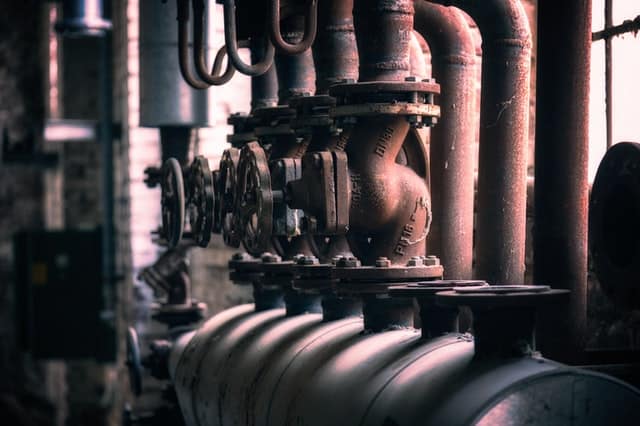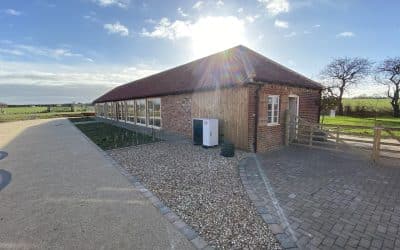With winter approaching, there are chances that your biomass boiler might stop working.
Now, although there are several reasons for that to happen, one of the most common faults is frozen boiler condensate pipes which usually occurs when the cold weather sets in. This fault results in your heating system shutting down – however, that’s your boiler’s way to keep you safe, if not warm.
That said, while regular maintenance can help you prevent this issue from happening, it’s still important that you’re aware of the basic ways to thaw a condensate pipe before approaching a professional company like JL Phillips.
In this blog, we’ve put together a list of ways to help you prevent your condensate pipes from freezing along with some tips to defrost it.
Let’s take a look!
How to Defrost Frozen Condensate Pipes
Here are four crucial steps you need to follow to defrost the boiler’s condensate pipes:
- The very first and basic step in the defrost process is to locate your system’s condensate pipe. These are usually white in colour that comes out of the wall that’s behind your boiler and is directly connected to the outside drain.
- Once you’ve located the pipes, boil some water in the kettle and leave it for nearly 10-15 mins; ensure the water is warm and not boiling. If you want, you can also use a microwavable heat pack or hot water bottle for the process.
- Now that the water is warm enough to be used, start pouring it on the boiler pipes from the top and work your way down on it until all the ice has completely melted.
- When that’s done, reset your renewable heating system and it’ll start working as usual.
If you’re unable to defrost the biomass boiler on your own, then it’s best you get it done from the heating specialists at JL Phillips.
Click here to get your free, quick quote!
Frozen Boiler Condensate Pipes – How to Prevent It
As we all know, ‘prevention is better than cure’ and with the weather only getting colder, there are chances that you may witness prolonged periods of harsh temperatures.
In that case, ensure that you’re following these tips to prevent your condensate pipes from freezing.
1. Decrease the Number of Outside Pipes
In order to stop your condensate pipes from freezing, try and run it internally as much as possible. This is because the less pipes that sit outside, the better!
Sure, you can’t do this on your own and will need the assistance of an experienced heating engineer but if your system’s condensate pipes are known to freeze, the time and money spent on this solution will be worth it.
That said, the next time your boiler undergoes a maintenance service, ask the specialist if certain improvements can be made to the system. This is primarily because only heating professionals with long standing industry experience can tell you whether the pipes can be run internally.
Why not get in touch with the experts at JL Phillips for professional assistance for the same?
2. Add Sufficient Insulation
If your property doesn’t allow you to connect the boiler’s condensate pipes internally, the next option you could consider is insulating areas around the pipe that runs externally.
This step becomes extremely important especially if your pipes are installed high up, making the process of unfreezing it with hot water difficult.
Now, while you could take up the process of adding insulation on your own, it’s better to call in a professional to help you out unless you know exactly what you’re doing. In doing so, you can ensure the right insulation material is being used and that it’s being installed as per the latest regulations.
3. Go for Larger Pipes
One of the best ways to prevent the issue of frozen boiler condensate pipes is to go for larger pipes.
While doing so, check the manufacturer’s instructions as some might recommend you to go for pipes with a diameter of 32mm or up to 40mm. Irrespective of the size you choose, ensure that the internal diameter isn’t less than 30mm.
Before going ahead with this process and changing the pipes, however, do ask your heating specialist to inspect the existing one and then make the necessary changes.
Contact the team at JL Phillips to discuss your boiler issues and get them fixed as soon as possible.
Additional Tips to Fix Frozen Boiler Condensate Pipes
If you’ve given the above tips a shot and they still haven’t fixed the freezing issue, here are some additional ways that you could experiment with.
1. Choose a Siphon Trap
If you’re planning to purchase a new boiler, perhaps go for one that comes with a ‘siphon trap’ type condensate water release. Although this is available only in certain models, it releases the same amount of water further reducing the risk of frozen pipes.
2. Get a Trace System Installed
If you’re living in an area that experiences temperatures below freezing for a few days straight, make sure you’re installing a trace system.
This system basically includes an electrical feature that’s connected to the condensate pipe, which warms it when the outside temperature drops below +5°C. What’s more, it’s designed to safeguard the pipes when the temperature is down to -20°C and is perhaps the only way to prevent freezing.
Only a professional heating engineer can install this system, so don’t try to do it on your own.
3. Lower the Exposure to Outside Weather
Is your boiler’s condensate pipe exposed to outside weather conditions? Have you installed it on a wall that receives enough sunlight?
If the colour of your pipe is black and the wall it’s installed on gets enough sun, then you could prevent the issue of frozen boiler condensate pipes. If not, better insulate the area around it or go for a trace system.
Contact JL Phillips for Expert Biomass Boiler Maintenance Services
If your boiler is constantly causing you troubles, there’s a high chance that you need to get it serviced from a professional.
At JL Phillips, our team of experienced heating specialists can take care of all your biomass boiler needs including frozen boiler condensate pipes issues and get them fixed as soon as possible.
Give us a call on 01636 642790 or drop us a line at info@jlphillips.co.uk




